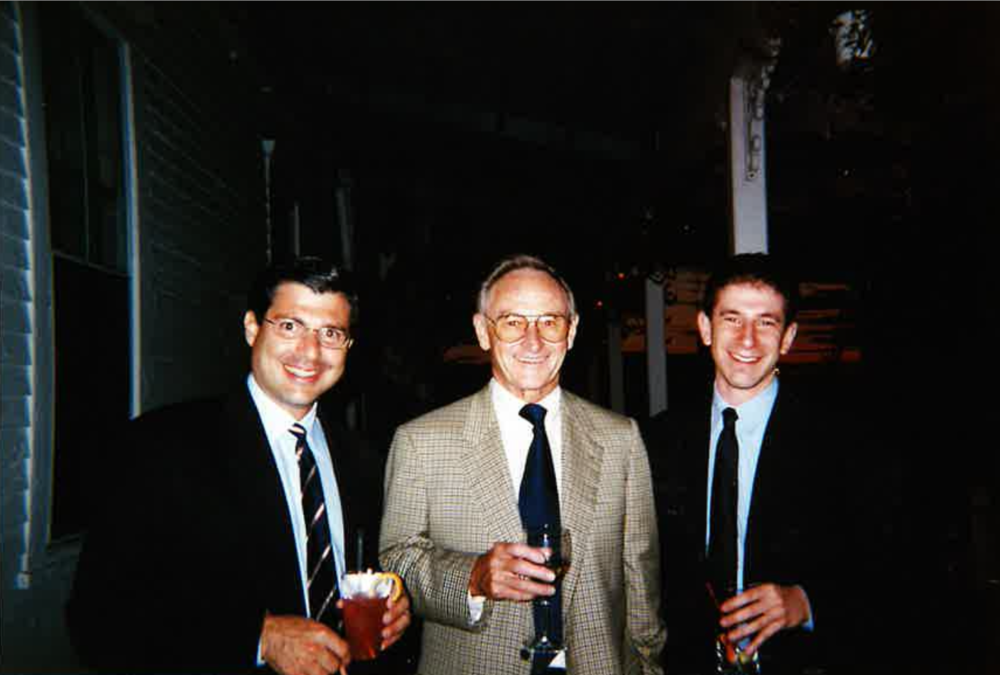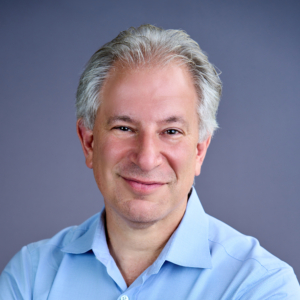
How can I say, in a few words, what made Katz so universally loved?
When we were a handful of years into building Katzenbach Partners, Jon Katzenbach worried that we weren’t clear enough about what we valued—and that we weren’t purposeful enough in seeing and resolving conflicts among our values. This exemplified what Katz felt was really at the heart of building a great firm—I don't ever recall his asking me a question about the P&L.
What Katz did then was quintessentially him—as clear an imprint of his soul as his impish grin or the animated, disarming way he’d bring anyone he met into heartfelt conversation.
He gathered a small group of firm members across levels and roles, people who felt deeply this question of crystallizing and living our values, and who were emotionally connected and indisputably credible to their peers. In his writing, he later came to call folks like this “authentic informal leaders.” He made space for them to discuss, over time, their aspirations for how the firm could be and their experiences of our shortcomings. When they’d progressed just far enough, he engaged me, and together we brought this essential work he was leading in the firm’s informal system into the firm’s formal system of commitment and decision making.
Out of this process came three phrases that came to permeate the life of the firm:
Clear and lasting client impact
Unique and formative experience
A different kind of firm
Katz passed away on the eleventh of October, at 93. Like so many, I’m still coming to terms with his absence. I share this story from twenty years ago not because it illustrates what was so special about his work—his masterful touch at shaping and reshaping organizations, so intuitive and so deeply studied—but because of how it expresses his human impact. What are any of us, once we’re gone, but whatever irreducible, never-to-be-replicated form of love we brought into the world?
Those words, unique and formative experience, for Katz’s many companions in building our different kind of firm, crystallize a period in our lives full of meaning and magic.
It is impossible to imagine what my own life would be without the experience of building a firm with Katz. I was just shy of my 27th birthday when Katz, Marc Feigen, and I opened our first office, on the ground floor of a brownstone on 37th Street. Katz placed extraordinary trust in me, which at that time sometimes seemed like just the way he was, but which feels absolutely breathtaking as I look back on it from my fifties. After the first few years, he and the partners entrusted me to play the firm’s Managing Partner role—clear, always, that the role of management was to enable, to be in service of the partnership and the team. Alongside our relationship as partners co-creating together, I experienced from Katz a constancy of support and a pleasure in my growth, which I didn’t have a word for then but which, now, as a parent myself, I can only regard as parental.
We brought Kenny Kurtzman into the partnership alongside Katz, Marc, and me. The difference he made to our shared endeavor was so consequential that Katz always experienced him, rightly, as a fourth co-founder. In one of our critical meetings to reflect on our collaboration as a partner team, Katz asked us to read the book Indivisible by Four, by Guarneri Quartet violinist Arnold Steinhardt.
Katz brought into the world a community that was indivisible by hundreds. In 2018, nine years after we sold Katzenbach Partners to Booz & Company and four years after Booz itself sold to PwC, we held a firm reunion. We invited the 350 people who had worked for Katzenbach Partners at any point over the firm’s ten-year life. About a third of them came to the crowdfunded event in New York, from across the US and from Europe and Asia. As I wrote then, that weekend “helped us each to see ourselves more clearly in one another’s light, to celebrate what we experienced together, and to look ahead, no longer as a firm, but still as a community.”
This weekend, a group of Katz’s family and friends will gather to remember him—to come together, that is, in the remembering we’ll always do.
As I look back—and as I listen, inwardly, to a voice and influence I could never be wholly separate from—I’m marveling at the completeness of the life Katz lived. He always showed up as his folksy, teacherly, relatable self—and consistently gave greatly to others. He never stopped wrestling with the questions that animated him, writing a series of books that were each, in the end, about work’s human core. He was a generational teacher and a tireless learner. He was, in his own words, the ultimate pride builder. He loved the front lines of organization and the front lines of life. He felt the importance of everyone and formed bonds everywhere he went.
Back in that conference room at 381 Park Avenue South, as Katz convened his conversations about values, he was fundamentally saying: at the end of the day, all we can do is decide what matters and act on that.
His impact was and will remain clear and lasting. His long turn here among us was unforgettable. He lived a different kind of life.

